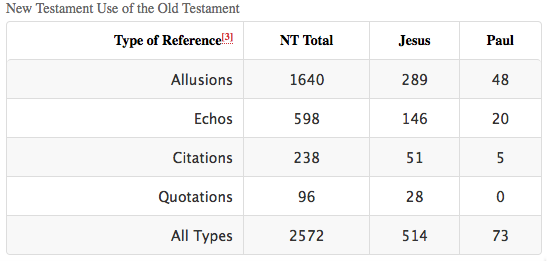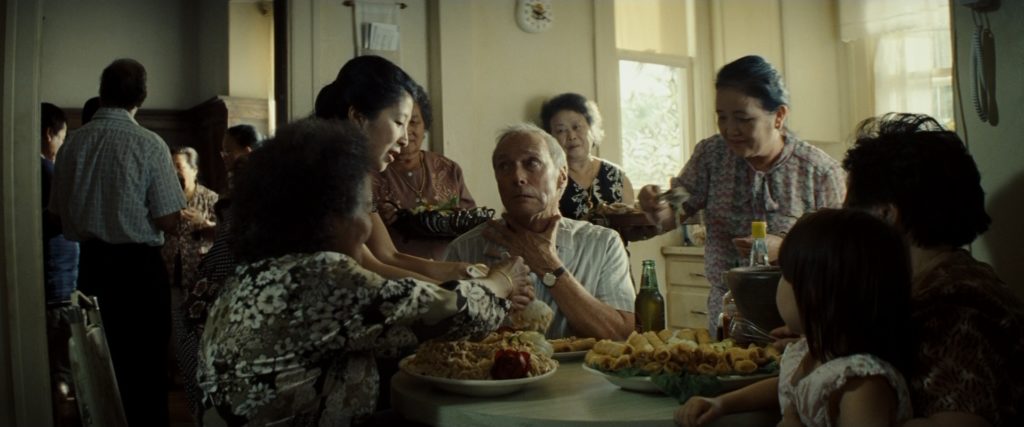Grandma GG died on the twelfth day of Christmas, 2017.
In Catholic tradition, the following day is the Epiphany, the feast of the three kings, commemorating the manifestation of Christ to the Magi. So, the original “12 Days” are not a children’s memory and forfeit game turned into a Christmas carol.
And yet, when a friend reminded me of the day, the first memory I had was of Timothy and Lucas singing that song in the shower of our ski lodge hotel, over the holiday. If there’s anything more beautiful than the sound of children singing it’s the sound of my children singing.
When we drove home, Timothy had the gifts of each day of the song memorized. Then, like my father did so many times, I changed things around on them. To show the boys they’re not stuck with the official version of things, I made up new gifts for the first four days and sang a new carol.
By the time we were done, our version had 12 strummers strumming, three french breads, two lady bugs, and a fish swimming in a glass jar.
Charlie’s Option ‘C’
It was a small change to a lovely song. But, small changes like that, initiated by my father, were at the core of why he and mom lived such an extraordinary life. The conventional was just one possible starting point for my father; a brilliant engineer certain that no one had the whole game figured out. As he would often say, that made running with the herd a most dangerous proposition.
As my cousin Keith put it, if there were options A and B for everyone else, my father had an option C to consider. Tell him that there’s two sides to every coin and he’d probably smile and point out that you missed the third side. You forget about the edge. That’s technically a third side.
I can just hear him saying, “Remember, Terry, nobody’s got the whole game figured out. The instant someone tells you they do, ‘Run!’.”
And yet, for all his insights, when visiting with them in Tokyo my father said the reason they were able to travel everywhere and do such fun things was because of my mom. He just went to work every day, as usual. Mom took care of the blizzard of details it took the relocate, setup another house, figure out the local markets, and pay the bills.
The Shenanigans Continue …
The Shenanigans of the Gillespie’s, the McNally’s, and now the Arbelaez’, continue with the next generation. We sing the beautiful songs given us with the audacity to change the lyrics. The melody eventually goes, too, and the composers are forgotten. New life sings its own version of ancient songs. And nothing but the Grace of God is so assured that it should be immune from re-examination or re-canted with the joy of a personal imprint.
In Everything I Do
I must study politics and war that my sons may have liberty to study mathematics and philosophy. My sons ought to study mathematics and philosophy… in order to give their children a right to study painting, poetry, music, architecture…1
And so it was that my brother and I were able to study music and architecture. Everything I do is on the shoulders of my parents, and on my knees, for the glory of our Father in heaven. The sacrifices they made, and the small changes to the norm my dad would always make, compounded into an enveloping blanket of possibilities my brother and I had the luxury of taking for granted.
An Artful Life
Possibilities are the breeding ground of creativity. The fruit of creativity is an artful life and, hopefully, the appreciation of the liberties that make it possible.
My parents were always there to help. Only because I was so sure of that, did I rarely need it. It was a premise in our relationship and bestowed a freedom to compose an extraordinary life. May the compositions of Isabel and I be a worthy extension of their legacy.
The Highest Privilege
When friends used to ask about my childhood I didn’t know what to say. What’s the opposite of a shitty childhood? Whatever that is, that was us.
Such discussions now involve notions of privilege and what that might be. From my parents, I know the answer: the highest earthly privilege, of all, is to be born into a household with a loving father and mother.
I can’t say it enough, and can’t stop thinking it: everything I do only makes sense when viewed as an extension of them. While others may try to discard their heritage, or apologize for it, I will spend the rest of my life being thankful for, and exploring the depths of, my own.
Geraldine Marie Gillespie
An excellent wife who can find?
She is far more precious than jewels.
The heart of her husband trusts in her,
and he will have no lack of gain.
She does him good, and not harm,
all the days of her life.2
My father found this in my mother, Geraldine Marie Gillespie. And because their lives reflected its importance, I eventually found the same in Isabel. So, Isabel was the perfect one to give my mother her most favorite title of all: Grandma GG.
It was a name quickly conjured to avoid confusion with Martha, the other grandmother living in our house at the time. And, though the role of grandmother is rarely exceeded in stature or importance, it was a role my mother never expected to play. But, as I was to learn in the hours after her death, there was even more than that bundled up into Grandma GG’s favorite title.
A Catatonic Epiphany
For the last three years of her life, I’d prayed to know the purpose of my mother’s increased suffering, being confined to a bed for the past 10 years, and even losing her words.
Then, as befitting the 12th day of Christmas, I was lead on the track of a catatonic epiphany to a small group meeting at our church. Perhaps only around other believers could something as heart-warming, yet terrifying, be revealed: that my mother’s highest purposes in life were identical to her work, which was, in turn, identical to her highest calling. All three of these cherished insights lined up into one for Grandma GG. Her purposes, work, and calling were, all three, the same. They were inextricably bound up, and poured into, her three great loves: my father, my brother, and me.
The rareness of all three of these lining up —something that perhaps only a wife and mother of her time were afforded — is partly why I missed them.
A Mother’s Grief
Seen from that vantage point, it became more understandable that she had the strokes that put her in the bed shortly after my father, and then brother, died. Two-thirds of her life purposes had just left the planet. Her husband and firstborn son, were gone.
For those who haven’t walked that path, there’s no way to comprehend the loss. What I know of it are from the sounds of her weeping over my brother; cries I’d often wished could become unheard as they resonated through every dimension in a way that only a mother’s grief could.
Mom held on, in part, to save me from what she felt that day. She couldn’t bear for the same to happen to me.
A Secret Project
Maybe every child has a feeling their parents are working on a secret project that’s never revealed or talked about. You know they’re up to something; you just don’t know what it is. Then, one day, you realize that the secret project they’ve been working on, all this time, is you.
Every grocery bag, pair of sneakers, uniform, piano lesson, field trip, monthly check for Catholic school … and every drop-off and pick-up and late-night vigil waiting for you to come home, is one more stitch in the patchwork of a quilt they’re making, but don’t expect to use, for their own warmth. They’re sowing the soil, and tending to trees for decades, in hopes that it will bear the most delicious fruit the world has ever seen. And yet they’re perfectly content to die having never taken a bite.
The Unbearable Absence of Reservation
We pour ourselves out for our children, not because they’ve earned it, but because our love for them comes with an almost unbearable absence of reservation. It’s the only fitting metaphor we have of God’s love for us.
What Christ did for all, we seek to do for our children, within the realms of our limited authority: To guide them away from error and onto the path of their most complete fruition. And when they fall short, to plead forgiveness for their youthful trespasses and cancel any records of debt that might stand against them with legal demands.
Charlie’s 10% Solution
My dad said their marriage worked because he put 10% of everything he had into it. My mom wholeheartedly agreed with him on that, adding that the other 90% came from her.
A New Plague
The late 70’s were a tough time for my parent’s marriage. A new legal option of No-fault divorce was creeping across the country like a plague, leaving broken families in its wake. The machinery of separation was put into motion with a 9-syllable incantation: “ir·rec·on·cil·a·ble dif·fer·ences” were not corporate mergers gone awry, but a legal pretense for parents to live in separate houses.
Neutrality & Fairness
I remember my mom saying they couldn’t handle being Switzerland with all the couples they’d known who’d become separate and warring nations; the kids pulled around new artificial zones that, unlike the Vietnam news stories on TV, were anything but demilitarized.
So, there were arguments, and dishes thrown, and frustrations we felt, but didn’t understand. That’s how my brother and I knew that, just because we were born into it, didn’t make our parent’s marriage a guarantee.
We also learned that people playing fair with each other was a recipe for disaster; that it took a lot more than mere fairness to be happy. Only when they became resigned to giving more than received did a peace, that surpasses all understanding, come to our house.
Wedding Song
As sung in the wedding folk song, popular at the time:
Woman draws her life from man and gives it back again.
But, the circle of the exchange in those lyrics spins faster than the inputs of the wedded couple. It’s that invisible extra energy the songwriter is asking about in the question, “Do you believe in something, that you’ve never seen before?”.
Grief is the Precious, Cut Short
I’ve learned from the deaths of my immediate family that the greatest cause for grief is when something precious is cut short of its expected completeness. And though I grieve for my mother, and still for my father and brother, I’m unable to view their lives as having been cut short; each for their own reasons.
Dad’s Bucket List(s)
In a conversation with my dad, a year before he died, he told me that when he was 10-years-old he made a list of things he’d dreamed of doing. By his mid-40’s he’d gotten to the end of that list, and made another. By the time of our conversation, he said he’d checked everything off that second list, as well.
The memory of that exchange was particularly comforting when he died, unexpectedly, a year later. How could his life be viewed as having been cut short if, by his own handwritten lists, he’d completed everything he’d set out to do?
Uncle Tim
When my dad’s brother came to visit, last year, I told him that story. He said he felt the same way and that his number was 75. Seven months later, nine days after Grandma GG, my Uncle Tim met his number.
Mom’s Unexpected Life
As for my mother, she never expected to get to do most of the things she, and my father, did. She raised two boys, traveled the world, got her high school diploma (about the same time we did), worked for a while to see what that was like, learned ikebana painting with the Japanese, and played golf with my father to her hearts content in their dream home, designed by their son, on the 5th hole of a private golf course in South Carolina. All of this, with her husband who’d retired at the age of 53.
It wasn’t until after my father died that I realized that Grandma GG was another artist in the family. Her opinions on logos, and colors, and ideas for business names, were always refreshing. And the grandchildren on her lap were the vitamins she took for her last eight years.
The fullness of Grandma GG’s life is the license we have to limit our grief to that of a life, not cut short, but fully lived.
Death ≠ Life Incomplete
A life is not devoid of purpose, nor incomplete, due merely to the fact that it has ended. If that were so, there is no hope for any of us, nor has there ever been.
I know this is not so, if only because of the memories I draw from them. My father may have helped me make more decisions, after his death, than before it. And though I believe it to be a mere fractal of a larger truth, there’s an undeniable life continued, here and now, in our memories, alone.
They Don’t Feel Gone
Staring at the bed of all the photos of my family it doesn’t make sense that they’re all gone. They don’t feel gone. After another series a fleeting moments, Isabel and my photos will be added to the pile. Then, it will be Timothy and Lucas staring at our pictures with this same odd feeling.
Memory is Proof of Life
Among the dead are those whose memories and past deeds are still having more of an impact on my life, today, than anyone currently living, ever will. So, the separation of who is here, and who is gone, becomes a more ambiguous proposition with each passing year.
After all, if memory of the once living is of no importance, then why punish a murderer? The victim’s gone and justice won’t bring them back. But, murderers are punished because the living will not put their memories away. The bell of the victims life will not be un-rung. And neither will the absence of justice be forgotten, or un-factored in to the righteous behavior of the survivors.
I believe the soul is sanctified by the Holy Spirit, and continues a new life in the unseen realm, as the body falls away. Still, unbelievers can take comfort in the memories of loved ones who’ve died, and the life contained in their memory of them.
Outer Limits
Many are grappling with end-of-life care issues, these days. The beginning of our story, and how four generations came to live under one roof, is in Why I Live with my In-Laws and Living With My In-Laws (One Year Later).
In the first few years, not a day went by without a citation of the fourth commandment, in one direction or another. We eventually got the hang of it in seeing the final years of Grandma GG’s life through. Her care was part of our purpose, while she was in the final stages of completing hers. We were like mirrors pointed at each other, each unaware of the reflections compounding into infinity.
Through the Eyes of Visitors
But, our children, and others, saw those reflections.
Every once in a while we’d get an outside perspective on our lives, through the eyes of visitors. It was like having a puppy and a friend stops by, two months later, and breaks the news to you that what you’re calling a puppy has become a dog.
As friends and family passed on condolences, one of the first things they’d say is how wonderful it was that Grandma GG spent her final years with her family.
They’re right, it was wonderful. But, it was just as wonderful to spend the long beginning of my life, with her.
End of the Rainbow
In retrospect, the struggles I had in caring for my mom were like a man complaining about a rock in his shoe while walking to the end of a rainbow. The treasure, waiting to be collected, is more than one house can hold. Part of that treasure is the proof that Grandma GG’s highest calling was met, so that even 1/3rd of its fulfillment was more than enough to reap for the care she needed.
Another part is that our boys woke up, everyday of their four and eight-year lives, with a grandparent living in the same house.
“God’s law is an unspeakably good and precious thing, and to live within it is to live the life that is eternal. To be sure, (God’s) law is not the source of rightness, but it is forever the course of rightness.3
The Potency of Holiness
Our bodies know the differences between darkness and light better than our minds. While surprised that a candle has lit up the whole gymnasium, our bodies have already started walking towards it.
Light is more than the absence of darkness. And holiness is more than the absence of sin. If sin is the drum of water we drink from, then holiness is the teaspoon of bleach that makes the whole drum potable.
Her Inheritance
My moms inheritance is in answering her highest calling. It was poured out into her three men, into her new family, and also for those who saw her race, finished well.
And like the story of the thief on the cross, who had no hope before that fateful day, may the retelling of her story inspire other families to stick together and light their own candles with the fire within. And may a spoonful of that be credited to the account of Grandma GG’s inheritance in the Kingdom of God.
In Our Muscle Memory
Grandma GG is still in our muscle memory and in the walls of the house. While writing these words, I’ve kept the room monitor on in my office in case Grandma GG needs something. Isabel and I still hear the bell she used to ring, and the pitch of her voice, calling for something. We’re still quiet on the phone so as not to wake her, and we keep feeling the need to break away from dinners with friends, because mom’s been alone for too long.
The Smirk on Lucas’ Face
Grandma GG did not abide orders or directives. There was a certain way she’d purse her lips and stare when orders were detected. That’s when you knew there wasn’t a thing in the world that could move her. You’d just settled the matter; nothing would move her until she was good and ready.
One day, while giving an order to our two-year-old, I looked over to see something that brought chills of deja’vu. Lucas had the same eyes, and curled up smirk, I’ve seen on my mothers face for fifty years. I knew immediately the battle lines were drawn, and he had the upper hand. My mother’s will-not-abide smirk had been transmuted right onto Lucas’ defiant face.
I can only imagine the deep-rooted pig-headedness originating from ancient celtic roots that is now a weapon in his arsenal. And, boy, it’s a good one. Grandma GG would love knowing that she had left her Lucas Michael, so well-armed. As foreboding a look as it is, I love seeing her smirk on Lucas’ face. Even though I know what I’m in for.
Timothy’s Willy Wonka House
“When you love someone you go to the ends of the earth for them.”
— Aunt Bernie
Timothy doesn’t have Grandma GG’s defiant smirk. What he inherited from Grandma GG is waking up for the first eight years of his life with grandparents living in the same house. He has the cookies and candy in her drawer, her birthday gifts, the coca-cola Santa Claus kisses, and grandparents’s day at school.
When watching the original Willy Wonka, Timothy saw nothing odd in all the grandparents in the bed. To him, it was a matter-of-fact depiction of the way all families live. Families take care of one another, come what may, and no one is left behind.
Conclusion
Prior to my mom’s passing, Isabel had never experienced the death of an immediate family member. Now, as a reluctant veteran, perhaps she’d agree that death, compared to life, is a simple thing.
Death doesn’t give meaning to life; it just imposes a deadline on the project to perfect the soul our bodies are bound to, for a while. The body gives out, and the soul is released, to forever be what it became under the care of our earthly stewardship.
The greatest gift of life is the chance to shape, and try to perfect, the state of our immortal souls.
May we prepare for death like a bel canto singer navigates through the passagio of the upper-middle voice; switching over to a new set of involuntary muscles so the voice may gracefully ascend into its highest range.
But, She’s Ours!
Two weeks after she died, Lucas asked, “When are they going to send Grandma GG back?”
“What do you mean, Lucas?”, Isabel asked.
“When are they going to be done working on her body … (counting on his fingers) … “1-day, 2-days, 3-days, 4-days, 5-days?”
“She’s not coming back, Lucas. We have to go see her.”
“But, she’s ours!”, he said.
Then, last week, Lucas asked the same question. When Isabel told him Grandma GG was gone he yelled, “But, she’s ours! Why can’t they fix her body and send her back?!” before crying for five minutes; an eternity for a four-your-old.
Yes, honey. She’s ours.
And we will never forget her, nor the last time we saw her, this morning as she prepared for her journey and waved goodbye and slipped the surly bonds of earth to touch the face of God.4
Songbirds, P.S.
Alright, mom. These words hardly begin to summarize your life. But, you’d be happy with a few highlights in your son’s voice. It must have been awesome to get out of that bed and stretch out into a walk!
Remember when Dad borrowed Wendell’s RV and we camped and drove across the whole country? Dad wore out those Fleetwood Mac tapes and almost killed us on the mesa verde mountain curves.
My least favorite song is the one I can’t get out of my head. It reminds me of you and dad. You guys are together, now, like you imagined for all those years watching the golf channel. Every time that bell rings it feels like you’re still here. I’m glad, we’re glad, that, “For you, there’ll be no more crying.”
For you, the sun will be shining.
And I feel that you’re with us
And It’s alright, I know it’s right.My songbirds are singing, like they know the score.
And I love you, I love you, I love you, like never before.
I love you, mom, dad, and Tim, like never before.
So long, Grandma GG.







